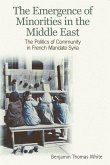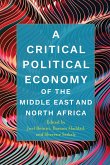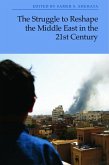'We finally have the first rich comparison of the political changes that have been taking place in MENA countries, where domestic and international aspects are analysed in depth. This book will be compulsory reading for scholars, students and even more for all professionals who - with different responsibilities - are operating in the area.' Leonardo Morlino, Professor of Political Science, LUISS G. Carli, Rome and former President of the International Political Science Association Analyses the democratic and autocratic dimension of the recent political changes in MENA Taking a comparative approach, this book considers the ways in which political regimes have changed since the Arab Spring. It addresses a series of questions about political change in the context of the revolutions, upheavals and protests that have taken place in North Africa and the Arab Middle East since December 2010, and looks at the various processes have been underway in the region: democratisation (Tunisia), failed democratic transitions (Egypt, Libya and Yemen), political liberalisation (Morocco), increased authoritarianism (Turkey, Bahrain, Kuwait) and fragmentation of state authority (Syria and Iraq). In other countries, in contrast to these changes, the authoritarian regimes remain intact (Saudi Arabia, Qatar, United Arab Emirates). Key Features . Develops a comparative overview of the consequences of the Arab Spring for the political regimes in the region and for the wider world . Takes a thematic approach with chapters on parties and political groups, elections, constitutional frameworks, governance, civil society, rights and freedoms, regional powers, security issues, foreign policy, and media and media freedom . Looks at EU and US foreign policy in the MENA region . Countries covered: Algeria, Bahrain, Egypt, Iraq, Jordan, Lebanon, Kuwait, Iran, Israel, Libya, Morocco, Oman, Qatar, Saudi Arabia, Syria, Tunisia, Turkey, United Arab Emirates, Yemen Inmaculada Szmolka is Professor in Comparative Politics and Middle Eastern and North African Politics at the University of Granada. Cover image: Muhannad Fala'ah / Stringer / Getty Images Cover design: [EUP logo] edinburghuniversitypress.com ISBN [PPC] 978-1-4744-1528-6 ISBN [cover] 978-1-4744-1530-9 Barcode








